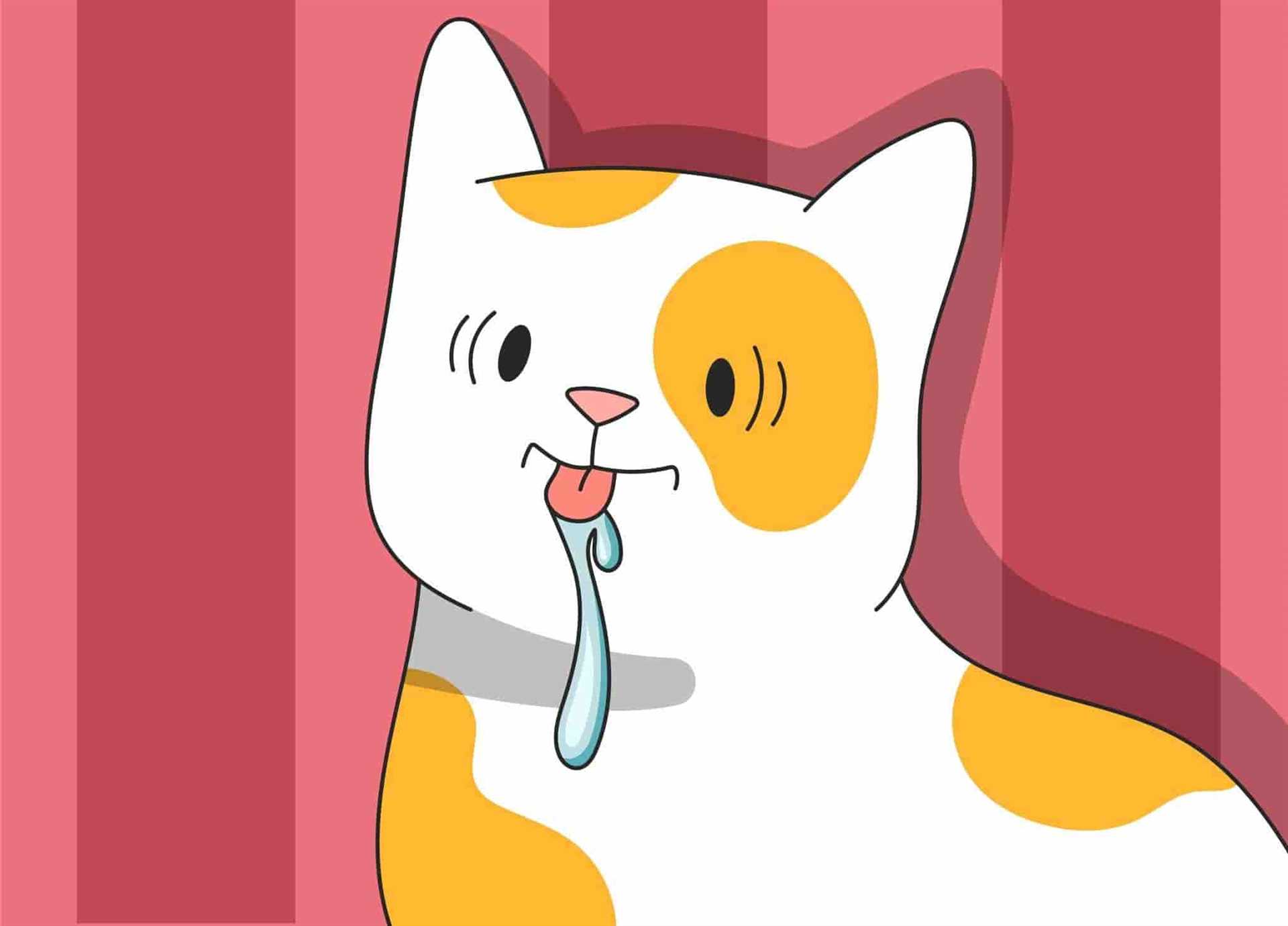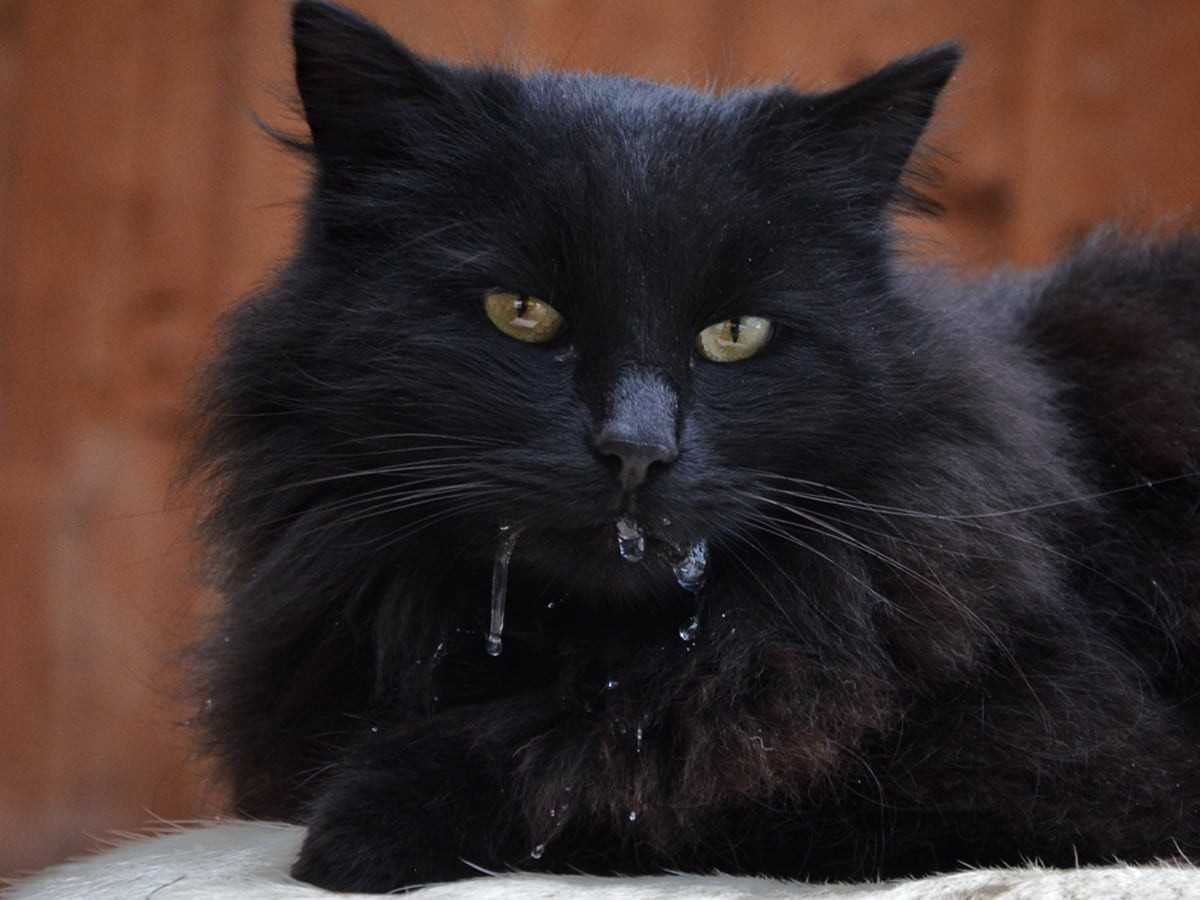



When I noticed a change in my routine, particularly with my appetite and the consistency of my mouth’s moisture, I knew something was off. It’s crucial to pay attention to these signs, as they can indicate underlying health problems that require immediate attention. If you find yourself in a similar situation, consider visiting a veterinarian without delay.
Several factors can contribute to an unusual build-up in the mouth. Dental issues, such as gingivitis or periodontal disease, can cause discomfort and make it difficult to consume food. Additionally, infections or oral tumors may lead to excessive fluid production. Regular dental check-ups are vital for maintaining oral health and preventing these conditions.
Another possibility is the presence of foreign objects lodged in the mouth or throat. This can create a blockage, causing distress and altering normal eating habits. If you suspect this, it’s advisable to seek professional assistance right away to avoid potential complications.
Stress can also play a significant role in changes to eating behavior and mouth moisture levels. New environments, changes in routine, or even loud noises can affect one’s ability to feel comfortable enough to eat. Providing a calm and supportive atmosphere can greatly assist in easing anxiety.
Always trust your instincts and keep a close eye on any shifts in behavior. Observation is key to identifying issues early on. Staying informed can make all the difference in ensuring a healthy and happy life.
Common Causes of Excessive Drooling in Cats
Dental issues rank high among reasons for increased moisture production. Periodontal disease, gingivitis, or tooth decay can lead to discomfort, causing me to produce more fluid in response to pain. Regular oral check-ups are vital to catch these problems early.
Another factor involves foreign objects lodged in the mouth or throat. Something as simple as a piece of string or a splinter can trigger a reaction, leading to excessive secretion. If you notice strange behavior or difficulty swallowing, a vet visit is necessary.
Health Conditions to Consider
Various health conditions may also contribute. Feline leukemia virus (FeLV) or feline immunodeficiency virus (FIV) can affect well-being, resulting in abnormal secretions. Additionally, liver or kidney diseases may manifest through changes in moisture levels in the mouth.
Allergic reactions to food or environmental factors could also play a role. If a new diet or change in surroundings correlates with increased moisture, consider consulting a veterinarian for guidance.
Medications and Stress
Certain medications can lead to changes in saliva production. If a recent prescription aligns with unusual behavior, discuss options with your veterinarian. Stress and anxiety may also trigger similar responses. Identifying and mitigating stressors in the environment can help alleviate the issue.
| Cause | Description |
|---|---|
| Dental Problems | Gingivitis, tooth decay, or periodontal disease causing discomfort. |
| Foreign Objects | Items stuck in the mouth or throat leading to excessive fluid. |
| Health Conditions | Infections or diseases affecting the immune system or organs. |
| Allergic Reactions | New foods or environmental changes prompting a response. |
| Medications | Side effects from drugs leading to increased moisture. |
| Stress | Environmental anxieties causing abnormal behavior. |
Signs of Dental Issues to Watch For
Red or swollen gums indicate inflammation, which might suggest periodontal disease. If you notice this, it’s time to visit the vet.
Bad breath can also signal underlying dental problems. A foul odor often means bacteria are present, leading to decay.
Behavior changes, like reluctance to play or interact, may indicate pain. Pay attention if your furry friend seems more withdrawn than usual.
Difficulty chewing or favoring one side while eating is a clear sign that something is wrong. Watch for dropped food or excessive licking of lips.
Excessive pawing at the mouth or face can indicate discomfort. If your companion is frequently trying to soothe their muzzle, it’s worth investigating.
Unusual drooling patterns, especially if it’s more than normal, can be a sign of dental distress. Monitor for anything out of the ordinary.
Weight loss can occur due to pain while eating. If meals are being skipped or reduced, this may be linked to oral health issues.
How to Identify Oral Injuries or Infections

Check for any visible wounds in the mouth. Gently lift the lips to inspect the gums and teeth. Look for cuts, swelling, or unusual growths.
Monitor behavior closely. Reluctance to chew or excessive pawing at the face can indicate discomfort. Observe if there’s any bleeding or an unusual odor emanating from the mouth.
Pay attention to changes in eating habits. A decrease in appetite or preference for soft food may signal oral pain. If there’s a sudden change, it warrants further examination.
Inspect the tongue. Any discoloration, swelling, or lesions can be signs of infection or injury. A healthy tongue should appear pink and moist.
Consider temperature and overall demeanor. A rise in temperature can indicate infection. Lethargy or hiding behavior often accompanies oral health issues.
If any of these signs are present, seek veterinary assistance. Early detection is key to preventing further complications.
Understanding the Impact of Stress on Eating Habits
Stress factors can greatly influence my feeding routines. Changes in the home environment, such as new pets or renovations, can lead to anxiety, causing a loss of appetite. It’s essential to keep the surroundings calm and familiar.
Monitoring my body language and behavior is crucial. Signs of distress include hiding, excessive grooming, or sudden aggression. These behaviors often indicate that something is amiss, potentially affecting my willingness to eat.
Routine plays a significant role in my comfort. Regular feeding times and the same type of food help maintain a sense of security. If there are disruptions to my schedule, I may refuse meals altogether.
Creating a safe space can alleviate stress. A quiet area with my favorite blankets or toys can encourage me to relax and eat. If stress persists, consulting a veterinarian can provide insights into possible underlying issues or recommend behavioral therapies.
In some cases, engaging in play can distract from stressors, leading to a healthier appetite. Interactive toys or gentle play sessions can help shift my focus and improve my mood.
For those looking to maintain their environment while managing stress, check out the best pressure washer for screen printing for easy cleaning solutions that keep my space tidy and comfortable.
Symptoms of Systemic Illnesses in Cats
Experiencing unusual behaviors, such as a lack of appetite or excessive moisture, can indicate underlying health issues. It’s crucial to observe any additional signs that may accompany these symptoms. For instance, weight loss, lethargy, or changes in litter box habits may suggest systemic problems.
Monitor for signs like vomiting, diarrhea, or unusual urination patterns. These can be linked to kidney disease, liver dysfunction, or even infections. If you notice persistent coughing, sneezing, or difficulty breathing, respiratory illnesses or heart conditions could be at play.
Behavioral Changes
Sudden alterations in demeanor, such as increased aggression or withdrawal, can hint at discomfort or pain. Pay attention to grooming habits as well; neglect in self-care might signal distress or illness. Additionally, if your friend seeks warmth or hides more often, it could indicate a health issue needing attention.
Importance of Veterinary Care
Regular check-ups with a veterinarian are vital for early detection of potential systemic conditions. Keeping an eye on hydration levels is essential; a best heated water bowl for cats might encourage fluid intake, especially during illness. If any of these symptoms appear, seeking professional help promptly is the best course of action.
When to Seek Veterinary Attention for Your Cat
Immediate professional care is necessary if there’s persistent refusal of food for more than 24 hours, especially accompanied by excessive moisture from the mouth. If there are signs of distress, such as yowling or pawing at the face, it’s crucial to reach out to a vet. These behaviors may indicate significant discomfort or pain.
Accompanying Symptoms
Look for additional indicators like vomiting, diarrhea, lethargy, or unusual behavior. If any of these symptoms are present, especially with changes in drinking habits or significant weight loss, veterinary intervention is essential. Rapid changes may signal underlying health issues that require prompt evaluation.
Duration of Symptoms
Monitoring the timeline of symptoms is key. If the condition persists beyond a couple of days, don’t hesitate to contact a veterinarian. Early detection of potential problems can lead to better outcomes and faster recovery. Always trust your instincts; if something feels off, it’s better to check in with a professional.
Home Remedies and Management Tips for Excessive Salivation

Start with hydration. Ensure fresh water is always available. Dehydration can worsen discomfort. Use a syringe or dropper to gently provide fluids if necessary.
Consider softening food. Wet or soaked kibble can make meals easier to consume. This helps avoid further irritation in the mouth while encouraging intake.
Try herbal remedies. Some cats may benefit from chamomile or peppermint, known for their soothing properties. Always consult a trusted veterinarian before introducing new herbs.
Maintain oral hygiene. Regular tooth brushing can prevent plaque buildup, which contributes to dental issues. Use cat-specific toothpaste and a soft brush for a comfortable experience.
Check for stressors in the environment. Changes in the household, new pets, or loud noises can impact appetite. Create a calm atmosphere with cozy hiding spots and familiar toys.
Observe diet preferences. Sometimes, a change in flavor or texture can stimulate interest in meals. Experiment with various brands or types of food to find what entices.
Monitor temperature. If your furry friend feels unusually warm, a fever may be present. Ensure a comfortable resting area and keep an eye on any additional symptoms.
Utilize soothing sprays or diffusers. Products designed to relax pets can create a serene environment, potentially promoting a more relaxed state during meal times.
Encourage gentle play. Light engagement can stimulate appetite by providing physical activity without overwhelming energy demands. Simple interactions can help keep spirits high.
Document changes. Keeping a log of eating habits, drooling episodes, and any other symptoms can aid in discussions with a veterinary professional during visits.









